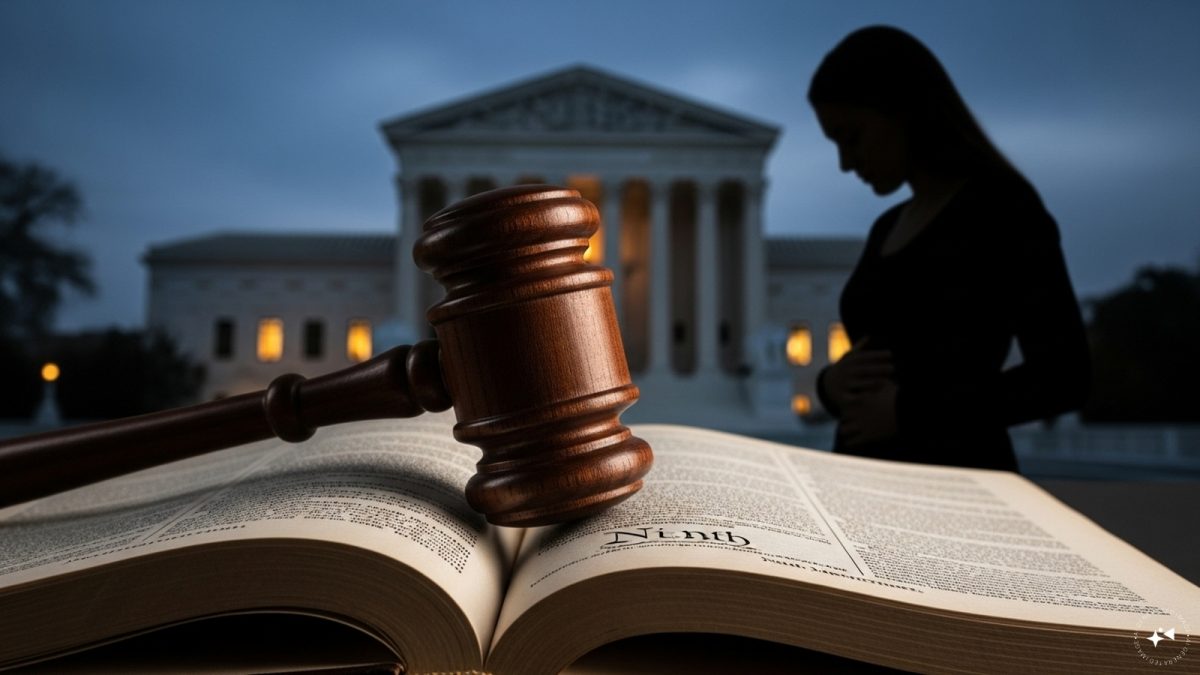As President Donald Trump advances his federal judicial nominees through the Senate, a clear pattern is emerging: many appointees hold strong anti-abortion views and have actively defended restrictive abortion laws. This strategy allows the Trump administration to reshape abortion access in the United States through the judiciary, sidestepping the political and public backlash that might accompany direct legislative or executive actions.
Nearly half of Trump’s 17 judicial nominees in his second term have taken public stances against abortion rights, participated in high-profile legal battles to uphold state restrictions, or are affiliated with conservative anti-abortion groups, a recent AP review found. These lifetime federal appointments promise to influence abortion access long after Trump leaves office, subtly embedding a federal rollback of abortion rights under the guise of state-level decision-making.
Bernadette Meyler, a constitutional law expert at Stanford University, explains this judicial nomination strategy as a “federal shaping” of abortion policy without the drama and visibility of legislation. “It’s a way to cover up a little bit what is happening in the abortion sphere compared to legislation or executive orders that may be more visible, dramatic and spark more backlash,” she said.
Despite Trump’s public statements favouring state control over abortion laws, the judicial nominees reveal a coordinated federal effort to restrict abortion access nationwide. None of the nominees have records supporting expanded abortion rights, and most hail from states that supported Trump in 2024 and where Republican legislatures have aggressively limited abortion access.
Among the most notable nominees:
Whitney Hermandorfer, confirmed to the 6th U.S. Circuit Court of Appeals, has challenged federal protections for abortion and transgender rights and defended Tennessee’s strict abortion ban. She argued abortion deserves “special scrutiny” as it “terminates a life.”
Maria Lanahan, nominated for a Missouri district court, helped draft lawsuits targeting FDA approval of the abortion pill mifepristone and defended state efforts to cut Planned Parenthood’s Medicaid funding.
Impact Shorts
More ShortsJordan Pratt, a Florida district court nominee, described abortion as a “barbaric practice” and supported Florida’s bans, including laws now prohibiting abortion as early as six weeks.
Joshua Divine, Missouri’s deputy solicitor general and a nominee for district judge, co-authored litigation falsely claiming medication abortion “starves the baby to death,” and has defended abortion restrictions despite a 2024 Missouri ballot amendment protecting abortion rights.
Other nominees have similarly played key roles defending restrictive abortion laws in Kentucky, Montana, and Florida, among others.
The White House, in defending these nominees, cites alignment with the 2022 Supreme Court decision overturning Roe v. Wade and emphasises states’ rights and the “sanctity of human life.” Anti-abortion organisations have praised the nominees as fulfilling campaign promises, while abortion rights advocates warn that the administration is systematically embedding anti-abortion ideologues into the federal judiciary, undermining decades of legal protections.
Mini Timmaraju, president of Reproductive Freedom for All, said, “This is a deliberate strategy to dismantle abortion access quietly through the courts, while publicly claiming to defer to states. It threatens to close off legal avenues that advocates have relied on to challenge harsh abortion bans.”
As the Trump administration continues to nominate judges, the federal courts are becoming the primary battleground for the future of abortion rights in America—shaping access not through popular debate or elected representatives, but through lifetime judicial appointments.
With inputs from agencies
)